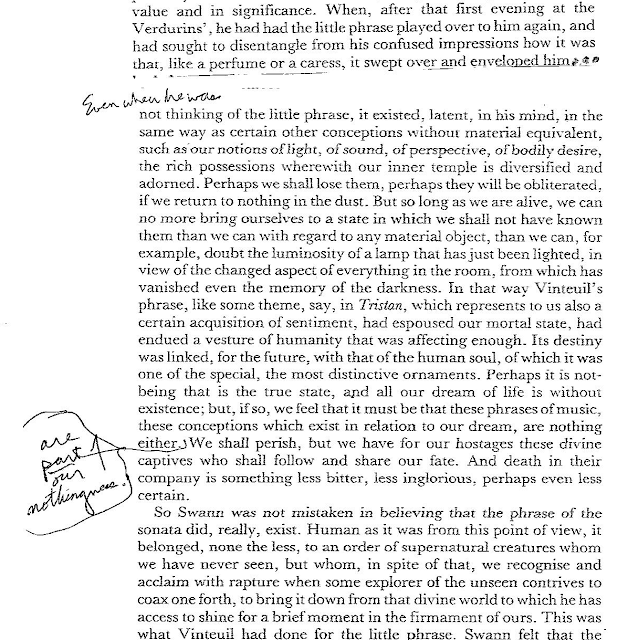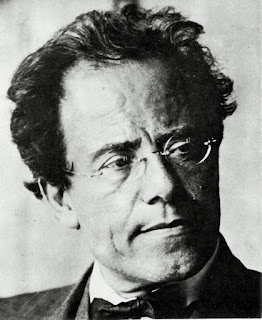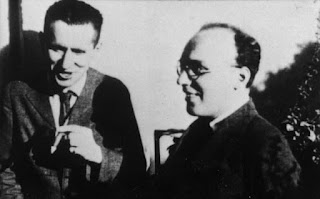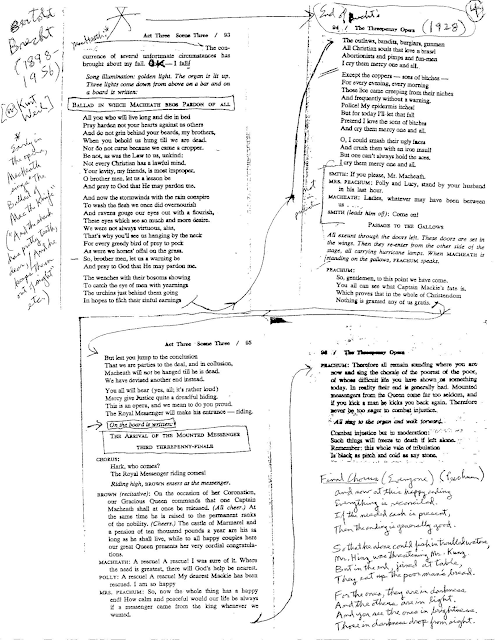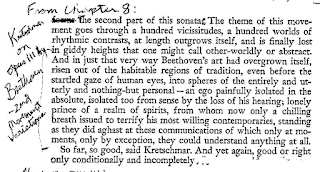The Fall of the Berlin Wall is a sequel to my earlier novel, “Hungry Generations,” about characters in their late twenties in Los Angeles circa 1972; it featured a legendary German-Jewish/Russian émigré piano-virtuoso, the ‘sacred monster’ Alexander Petrov, his wife and two adult children, as well as the composer and their friend Jack Weinstein, as a young man.
Now those characters are in their forties in Cleveland in November 1989,
and the novel is about personal crises echoing the fall of the Berlin Wall and
that upturning of the old order. Jack has become a successful composer and educator,
and he is married to Sarah, the intense and irrepressible daughter of the late
virtuoso.
The culture of classical music is
represented here by Cleveland Orchestra musicians and memories of émigrés in
flight from Nazi Europe, some of whom raised their American children in Los
Angeles. The lives of the young are partly shaped by popular culture – its
music, its preferred drugs, and the influence of punk. The culture of the
family is also at risk from memories and betrayals, and members of the
Weinstein family share the telling of this story. A surprising bonus is the
magnificent music played and imagined here.
It is Thanksgiving week, and Jack does not
understand why the couple’s marriage is collapsing. Visiting them for
Thanksgiving is Sarah’s brother, Joseph Petrov, who is Jack’s closest friend;
the hugely talented pianist son of Alexander is now caught in the middle
between his sister and his brother-in-law. The week’s events are told by this
trio of characters, and much of the novel revolves around Sarah – her
Dostoyevskian intensity, her suffering, her stinging repartee, and the
friendships she forms and betrays.
Friendship itself is a force – emotional,
erotic, and imaginative – in the lives of these characters, with its potential
success or failure for her and Jack, for the brothers-in-law, and for the group
of friends surrounding the three characters. Again, the surprising bonus
of the magnificent music played and imagined here includes Jack’s plans for a
work responding to the fall of the Berlin Wall. The idea that long-standing
barriers can collapse shapes the novel, its vision of politics, of music, and
the past.
This heartbreaking, tragicomic work brings to life each of the human
beings here. The characters in this emotionally compelling, partly political
literary work are reminiscent of Myshkin, Nastasya, and Rogozhin in
Dostoyevsky’s “The Idiot” or, also, of those in a greatly shortened DeLillo’s
“Underworld.” Integrated at the end of the short novel is a section titled “The
Past” containing six “origin” stories that evoke explosively what has been at
stake in the startling past of the characters.
Here’s the synopsis:
The Fall of the Berlin Wall – a novel
“Maybe I’m proud myself, even if I’m shameless. You just called me perfection. A fine perfection! – if just for the sake of being willful I’ve trampled on a fortune and a brilliant man.” --Nastasiya in Dostoyevsky’s The Idiot
Two events in November 1989 mark the lives of the novel’s
characters. One is the death of a woman discovered naked in the snow outside
the Weinstein house, during a massive storm buffeting Cleveland on
Thanksgiving. The other event is the fall of the Berlin Wall, taking place two
weeks earlier – an upturning of the old order that corresponds to these
characters’ desire to change their lives.
Jack
Weinstein wants to save his marriage to Sarah, the intense, unpredictable
daughter of the late legendary German-Jewish classical pianist and ‘sacred
monster’ Alexander Petrov. Unaware of what is causing the collapse of the
marriage, he tries to confront her dissatisfaction and shifting allegiances,
and much of the action revolves around her Dostoyevskian intensity, her
repartee, and the friendships she forms and betrays. Sarah and Jack are in
their forties and have a sixteen-year-old daughter, Sue, absorbed by her own
efforts to deal with boys and drugs.
Joseph, Sarah’s brother, is visiting this Thanksgiving week. He
is gay, and his friendship with his straight brother-in-law unfolds dramatically
here. Joseph finds himself in the middle of the
couple’s conflicts. The week’s events are told by the trio of family members.
Both Joseph and Jack are musicians. Joseph Petrov is, like his late father, a
piano virtuoso, and Jack is a classical composer and music professor; one of
his compositions has just been nominated for a Grammy in contemporary classical
music.
The Weinsteins’ friends have their own turbulence. And
friendship – both healing and broken – becomes an issue in all their lives. Each of these
characters has a piece of the solution to the troubles in the family’s lives,
to their joy and grief, to their betrayals, and to a death – possibly a murder
– that takes place in their midst. The Blacks, who live
around the corner, are about to declare bankruptcy, for Jacob has been denied
tenure and become a ‘freeway professor,’ teaching one class here, another there
across town. There are their mutual friends, the Sinclairs, and especially
Robert Sinclair becomes the target of Jacob’s bitterness about his life.
One of the Weinsteins’ best friends is an artist and a bohemian
of sorts, Tom Mubar, who is divorced and shares custody of his
seventeen-year-old son, Paul. Sarah has an affair, and when it collapses, she
is drawn to Tom, who understands – she believes – what a disaster her life has
become, but she painfully discovers that he does not reciprocate her feelings
and is himself trying to endure his own shocks and dangers.
Everything comes to a head when the Weinsteins celebrate
Thanksgiving with Joseph and their friends. At dinner, confrontations erupt
from the tensions brewing all week, and Sarah, already depressed and
disoriented, plummets into potentially suicidal despair.
“The
Fall of the Berlin Wall” is a tragicomic portrait of the confusions and
heartbreaking disasters in love and friendship, and it also pictures what may
endure our collisions – whether it be love, art and music, or simply the welter
of conflicting passions in youth and middle age. Six stories presenting the startling
past of the characters are integrated into the end of the novel.
(The work is about 51,000
words.)
Table of Contents:
Thanksgiving Week
Prologue:
Rachel and Jacob Black – Friday, November 24, 1989
Chapter
1: Joseph – Sunday afternoon, November 19, 1989
Chapter
2: Sarah – Sunday evening at the Weinstein party
Chapter
3: Jack – Monday morning, November 20, 1989
Chapter
4: Joseph – Monday evening at the Ramadanoff party
Chapter
5: Jack – Tuesday afternoon, November 21, 1989
Chapter
6: Sarah – Tuesday evening at Tom Mubar’s party
Chapter
7: Joseph – Wednesday afternoon, November 22, 1989
Chapter
8: Jack – Wednesday evening at Julius and Rose Weinstein’s party
Chapter
9: Joseph – Thanksgiving, Thursday, November 23, 1989
Chapter
10: Sarah – Thursday night at the Weinsteins
Chapter
11: Jack – Friday morning, November 24, 1989
Chapter
12: Sue – Saturday, Christmas Day 1989 in Berlin
The Past - Before the Fall
Chapter
13: Paul’s Story – The Fall of the Berlin Wall – November 9, 1989
Chapter
14 Tom’s Story – Triptych – 1950-1980
Chapter
15: Karen’s Story – Odalisque – September 1983
Chapter
16: Helen’s Story – Contrapuntal Piece – October 1982
Chapter
17: Jacob’s Story – Your Name Is Hiroshima – November 1984
Chapter
18: Julius’s Story – Einstein’s Sorrow – June 1980



